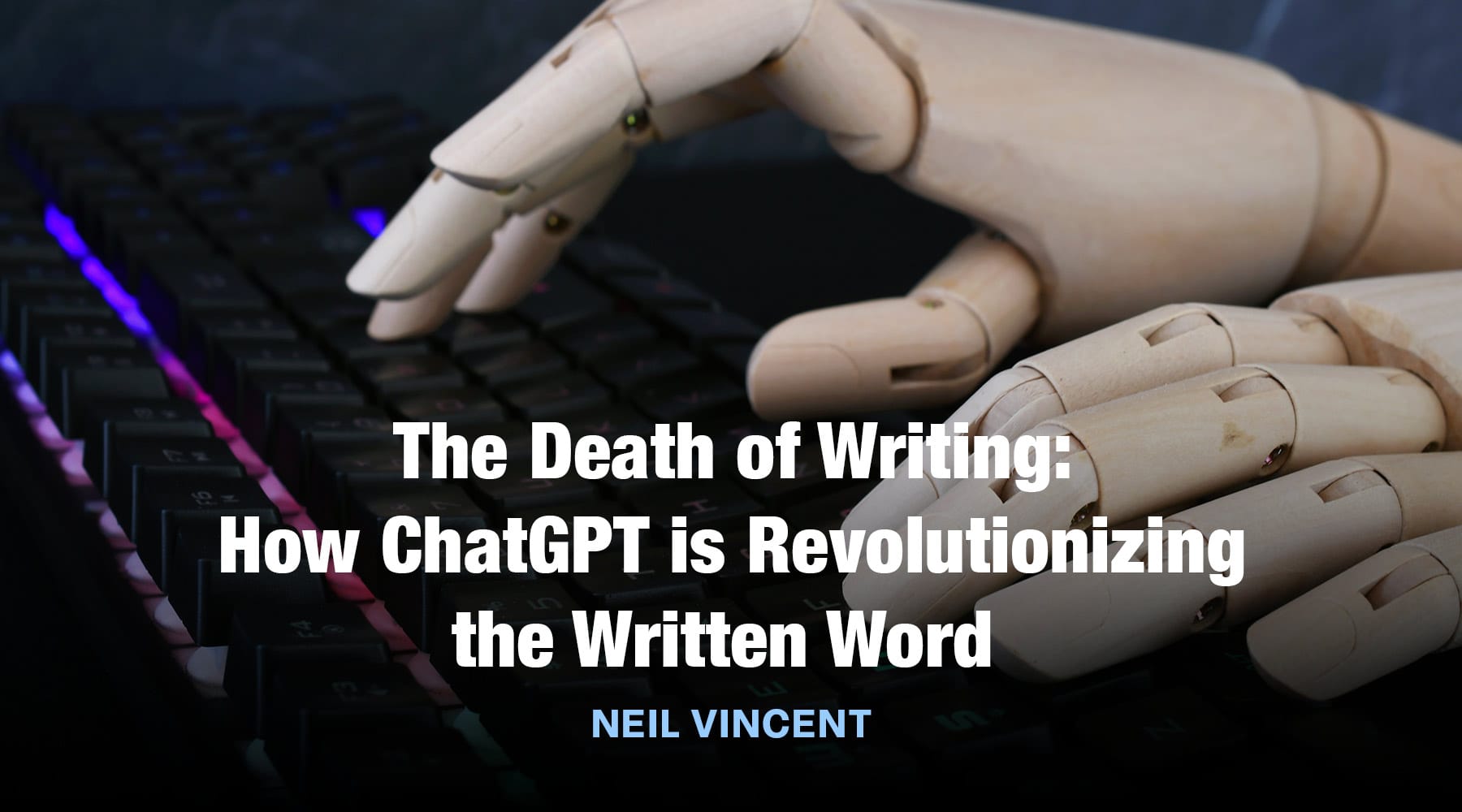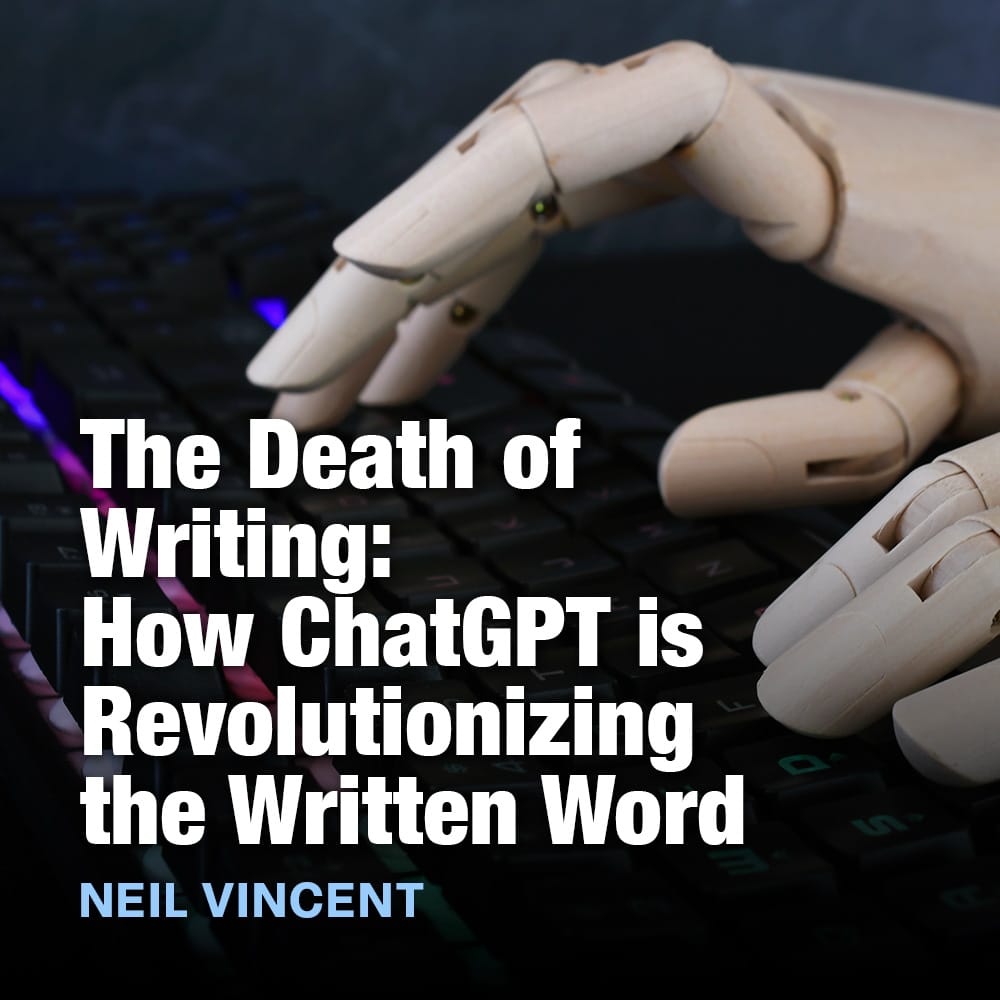Of all the things I find joy in, I think writing is special. The word vomit from my mind that lays out like resin on an empty table. I’ve always loved to write… but I’m also equally lazy and I have to write too… the love to hold attention with stories and jokes and lies and everything my distracted mind survives. It’s been many months since my incomplete novel begs me to come back and write another line… but too often my fingers glide over my screen in an endless scroll. Until I stumbled upon ChatGPT!
Writing has been a cornerstone of human communication for centuries. From the earliest cave paintings to the modern novel, writing has allowed us to share our thoughts, stories, and ideas with each other across time and space. However, with the advent of ChatGPT, a new form of writing is emerging that could change the way we think about the written word forever.
ChatGPT, a cutting-edge artificial intelligence language model developed by OpenAI, is capable of generating human-like text that is indistinguishable from that written by humans. With its advanced algorithms and natural language processing capabilities, ChatGPT can understand and interpret complex sentences, generate coherent paragraphs, and even write entire articles.
The impact of ChatGPT on writing has been profound. In many ways, it is as significant as the invention of electricity, which transformed the world by providing a reliable source of power that made countless technological advances possible. Today, ChatGPT is transforming the way we communicate with each other, making it possible to generate high-quality written content quickly and easily.
But there are concerns about the impact of AI-generated text on the future of writing. Some worry that it could lead to a decline in the quality of written content, as more and more people rely on ChatGPT and other language models to produce their writing. Others worry that it could lead to job losses for writers and other professionals in the writing industry.
However, the truth is, ChatGPT and other AI language models are not a replacement for human writers. Rather, they are a tool that can be used to augment and enhance the work of human writers. By taking care of the more mundane and time-consuming aspects of writing, ChatGPT allows writers to focus on the more creative and challenging aspects of their work, such as developing new ideas and crafting compelling narratives.
Moreover, the use of ChatGPT and other AI language models have the potential to democratize the world of writing. No longer is it necessary to have a degree in English or journalism to produce high-quality written content. With the right prompts and a little bit of training, anyone can use ChatGPT to generate content that is engaging, informative, and well-written.
One of the most significant benefits of AI-generated text is its ability to reduce the incidence of plagiarism. Plagiarism has been a major problem in the writing industry for decades. It occurs when someone takes someone else’s work and presents it as their own, without giving proper credit to the original author. Plagiarism is not only unethical but also illegal, and can result in serious consequences for the plagiarizer, including legal action and damage to their reputation.
AI-generated text, on the other hand, is not capable of plagiarism in the traditional sense. Because ChatGPT generates original text based on the prompts it receives, there is no risk of it copying someone else’s work. In fact, AI-generated text can be used to help prevent plagiarism by creating unique content that can be used as a reference or citation for original work.
However, there is a risk that AI-generated text could be used to deceive people into thinking that it was written by a human. This is particularly concerning in fields such as journalism, where the authenticity of a piece of writing is crucial. To address this concern, some researchers are working on developing tools that can detect AI-generated text and distinguish it from human-generated text.
In conclusion, the rise of ChatGPT and other AI language models are revolutionizing the way we think about writing. While there are concerns about the impact of these tools on the quality of written content and the job market for human writers, it’s important to recognize that they are not a replacement for human writers. Instead, they are a powerful tool that can be used to augment and enhance the work of human writers, making it easier to produce high-quality content quickly and easily.
As the technology behind ChatGPT and other AI language models continues to improve, we can expect to see even more widespread adoption of these tools in a variety of industries. From journalism and marketing to legal and medical writing, AI-generated text is already changing the way we communicate with each other.
Ultimately, the impact of ChatGPT and other AI language models on writing is still unfolding, and there is much that we don’t yet know about how these tools will shape the future of communication. But one thing is clear: the way we think about writing is changing, and it’s up to us to embrace these changes and use them to create a world where high-quality written content is accessible to all.
So, can you tell which parts of this article were written by me and which were written by ChatGPT? For now, it might be easy to distinguish between the two, but who knows what the future holds?


